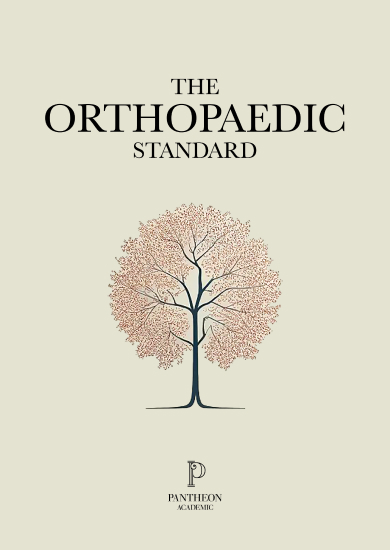Table of Contents
1. Submitting Your Manuscript ▼
Manuscripts must be submitted via our web-based submission system, in Microsoft Word format. Submissions sent via email will not be considered.
Submission Checklist
Before submitting, please ensure that:
- Your manuscript follows the formatting and structure guidelines.
- All authors and affiliations are listed correctly on the title page.
- You have included an abstract (if required).
- Figures, tables, and supplementary materials are correctly formatted.
- References include DOI links where available.
- You have uploaded all necessary supporting documents, such as reporting guideline checklists and ethics approval statements.
2. Article Types & Word Limits ▼
We accept the following types of submissions:
- Original Articles (Max 5000 words) – Reports of new research, including Introduction, Methods, Results, Discussion, and Conclusion.
- Review Articles (Max 6000 words) – Comprehensive analyses of existing research on a specific topic. May be systematic or narrative.
- Case Reports (Max 2500 words) – Detailed reports of unique or educational clinical cases.
- Short Communications (Max 2000 words) – Concise research findings of significant interest.
- Letters to the Editor (Max 1000 words) – Commentary or response to published articles.
- Educational Materials (Max 4000 words) – Teaching tools, instructional guides, or best-practice approaches.
- Interesting Images (Max 500 words) – High-quality images with explanatory notes highlighting rare or educational findings.
Word count excludes abstract, references, tables, and figure captions.
3. Manuscript Preparation ▼
Your submission should include the following documents:
1. Title Page
- Title (clear, concise, and relevant)
- Word count
- Full names and affiliations of all authors
- Corresponding author details (name, email, phone, ORCID ID)
- Conflict of interest statement
- Funding information
- Acknowledgments
- Ethics approval statement (if applicable)
- Data sharing statement (if applicable)
2. Blinded Manuscript
- For Original Articles: Introduction, Methods, Results, Discussion, Conclusion.
- For Case Reports: Background, Case Presentation, Discussion.
- For Reviews: Introduction, Methodology (for systematic reviews), Thematic Sections, Conclusion.
- References: Numbered sequentially using square brackets [1], [2], etc. Include DOI where available.
Tables and Figures
- Submit each table and figure in a separate Word document file.
- Provide clear headings and captions.
- Cite all tables and figures in the main text.
Supplementary Material
- Additional data (e.g., extended datasets, protocols, multimedia files) can be submitted separately.
- If lengthy, include a cover page and table of contents.
4. Ethical Considerations ▼
Plagiarism & Originality
- Manuscripts must be original and not be published or being considered elsewhere.
- All submissions will be checked for plagiarism
- Articles with excessive similarity to existing work will be rejected.
Research Ethics & Compliance
- Human & Animal Studies: Must include an ethics approval statement from an institutional review board (IRB) or equivalent.
- Informed Consent: Required for studies involving human participants.
- Clinical Trials: Must be registered in an approved public trial registry.
Authorship & Contributions
- All listed authors must have significantly contributed to the research.
- Use the ICMJE authorship criteria to determine appropriate authorship.
- Changes to authorship after submission require justification and approval.
Conflicts of Interest
- All authors must declare any financial or personal conflicts of interest that could influence their research.
5. Reporting Guidelines ▼
Authors should follow appropriate reporting guidelines based on their study type:
- CONSORT for randomized trials
- PRISMA for systematic reviews
- STROBE for observational studies
- CARE for case reports
The checklist must be submitted alongside your manuscript. Visit the Equator Network for more details.
6. Review Process ▼
Double-Blind Peer Review
- Author and reviewer identities are anonymized.
- Manuscripts are assessed by at least two independent reviewers.
- The review process typically takes 14 days, but timelines may vary.
Revisions
- If revisions are required, authors will receive detailed feedback.
- Revisions should be submitted within 14-21 days, with a point-by-point response to reviewer comments.
Appeals
- Authors who disagree with editorial decisions may submit a formal appeal with justification.
- Appeals will be reviewed by the editorial board.
7. Fees & Open Access Policy ▼
Article Processing Charges (APCs)
To support open access publishing, an Article Processing Charge (APC) of [$950] applies upon acceptance. This fee covers:
- ✔️ Peer review and editorial support
- ✔️ High-quality publication and indexing
- ✔️ Global dissemination of research
Waivers and discounts may be available for authors from low-income countries.
Licensing & Copyright
- Articles are published under a Creative Commons Attribution (CC BY) license, allowing broad distribution while crediting the original authors.
- Authors retain full copyright of their work.
8. Post-Publication Policies ▼
Corrections & Retractions
- If errors are identified post-publication, authors should notify the editorial office.
- Corrections or retractions will be handled per COPE guidelines.
Data Availability
- Authors are encouraged to share raw data or analysis scripts in public repositories where possible.
Promoting Your Article
- Share on social media using provided journal links.
- Distribute to colleagues via email or institutional repositories.
- Request press releases for high-impact studies.
9. Contact & Support ▼
For submission support, policy clarifications, or general inquiries, contact our editorial office at support@pantheonacademic.com.
We look forward to your submission!


